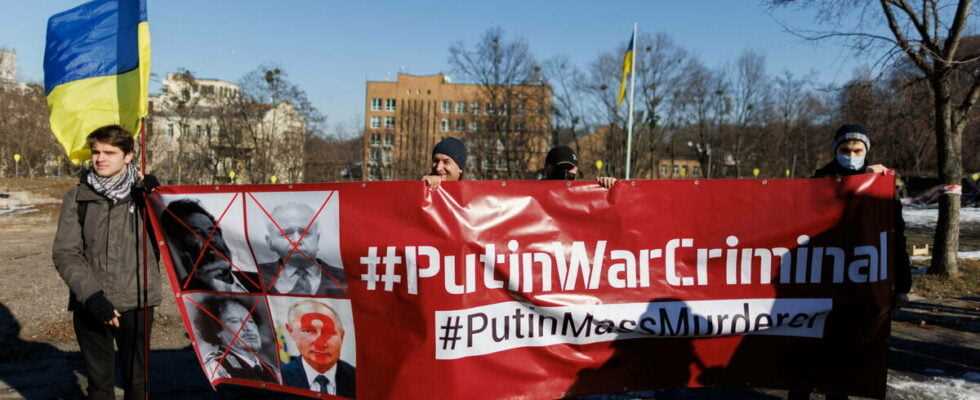As fears of an invasion of Ukraine by Russia peaked over the weekend, Moscow announced on Monday that a diplomatic settlement of the Russian-Western crisis is possible. An opinion shared in the evening by Joe Biden and Boris Johnson suddenly less alarmist.
After a week of heightened tension as Russian military maneuvers unfolded on Ukraine’s doorstep, Moscow has finally put a coin in the diplomatic machine. On Monday, Foreign Minister Sergei Lavrov deemed possible a diplomatic settlement of the Russian-Western crisis. He confirmed the end of certain military exercises, when the fear of an imminent invasion, carried mainly by the Americans, reached its peak.
As part of a filmed work session, Lavrov wanted to reassure: “I must say there is always a chance”, he answered a question posed by President Vladimir Putin. “Our possibilities are far from exhausted,” continued the Minister, even proposing to “extend and expand” dialogue. Much less offensive remarks than those that have emanated from Moscow in recent weeks. Sergei Lavrov also informed Vladimir Putin that some of the American proposals were “constructive”. “Good”, the Russian president answered him laconically.
For their part, British Prime Minister Boris Johnson and US President Joe Biden, who spoke on Monday by telephone, believe that“there remains a crucial opportunity for diplomacy” in the current crisis. The two leaders also reiterated that an incursion into Ukraine “would lead to a protracted crisis for Russia, with considerable damage for both Russia and the world”.
On Monday Defense Minister Sergei Shoigu, for his part, also announced the end of certain maneuvers. Since last week, successive land and sea exercises on the Russian-Ukrainian borders and in Belarus have fueled fears of a military escalation. “Exercises are taking place, one part is over, another part is coming to an end. Others are still being done given [leur] cut”, Shoigu said. Having amassed nearly 130,000 men and heavy artillery on the various borders of Ukraine, Russia denies any warlike desire. And insists that she feels threatened by the expansion of NATO in Eastern Europe. For a lasting de-escalation, Moscow calls for “safety guarantees”, in particular the assurance that Kiev will never join NATO and a withdrawal from Eastern Europe of the military infrastructures of the Atlantic Alliance.
But the situation remains explosive. The Pentagon reaffirmed on Monday that Moscow had further strengthened its military presence on the borders of Ukraine during the weekend. A week after Emmanuel Macron’s diplomatic tour, it was the German Chancellor’s turn to go to Kiev on Monday. “We expect immediate signs of de-escalation from Moscow,” he had tweeted before his trip. And once again threatened Russia with “serious consequences” in case of’“military aggression”. Following his meeting with Ukrainian President Volodymyr Zelensky, Olaf Scholz once again urged Moscow to seize the “dialogue offers”, while pledging to continue German economic aid. Without commenting on the latest Russian statements, he warned Moscow: “We will take far-reaching measures that will have a significant impact on Russia’s economic development possibilities.” It is that he intends to repeat, in person, Tuesday to Vladimir Putin.
For his part, the Ukrainian president considered that the controversial Russian-German gas pipeline Nord Stream 2, which bypasses Ukrainian territory to deliver Russian gas to Europe, was a “geopolitical weapon”. He also qualified as “big mistake” the decision of certain countries, including the United States, to move their embassies out of Kiev and to repatriate their nationals.
